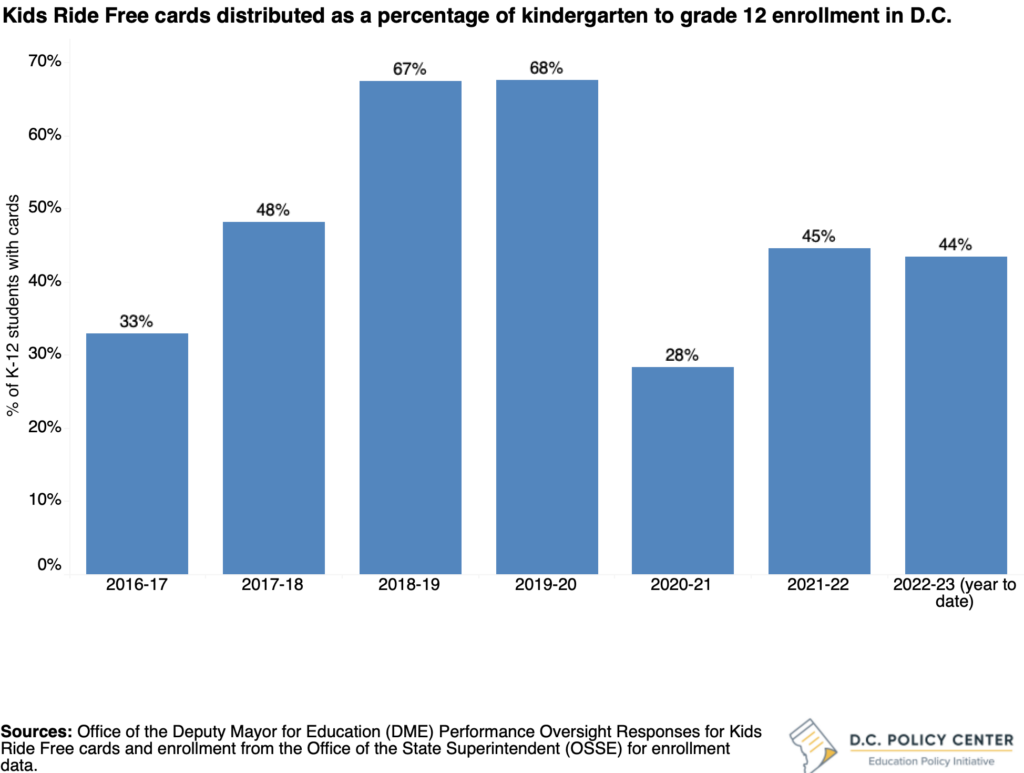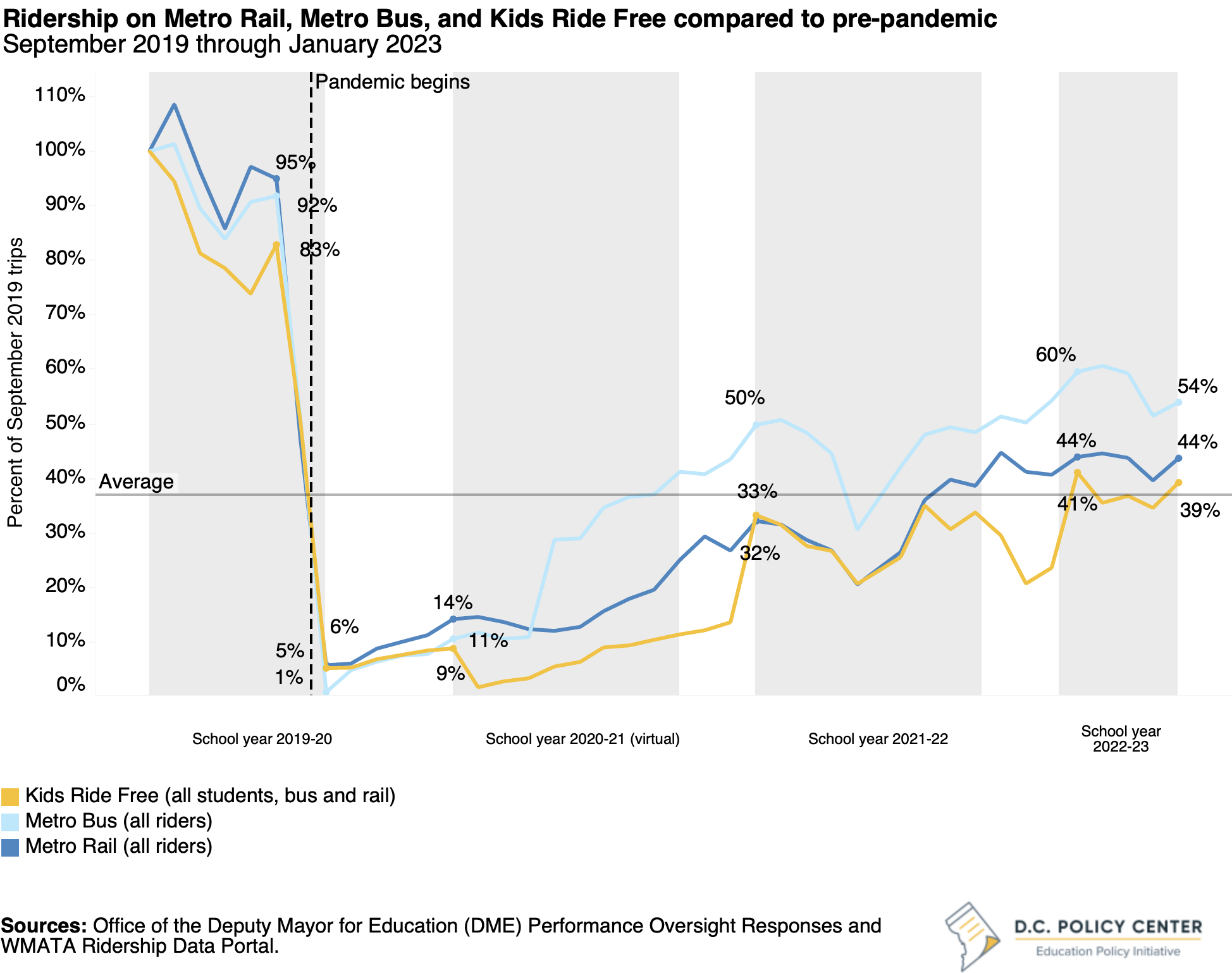The Kids Ride Free Program allows students in D.C. to ride Metrobus or Metrorail at no cost. To be eligible for the program, students must be a resident of D.C., ages 5-21, and enrolled in an elementary or secondary public, charter, private, or parochial school located within the District.1 It is a critical program for student commutes, as D.C. does not have traditional school bus services.
Students’ use of Kids Ride Free dropped dramatically when the pandemic began to 5 percent of September 2019 trips and remained low through the virtual school year of 2020-21. However, it has been steadily increasing since students returned to school in-person: usage was 29 percent of pre-pandemic levels in school year 2021-22, and 37 percent in the first five months of school year 2022-23 (August through December 2022). It inched up a bit more in January 2023 to 39 percent, but ridership recovery of the Kids Ride Free program lags general Metrorail ridership (44 percent of pre-pandemic) and Metrobus ridership (39 percent).
While multiple factors may have contributed to this slower recovery, data suggest that fewer students are interested in the Kids Ride Free program. As of January 2023, 44 percent of kindergarten through grade 12 students had requested and received a MetroCard. This share was 68 percent of students at its peak during school year 2019-20.2


Why is there less interest in free commutes to schools?
Lower use of the Kids Ride Free program could be due to fewer kids going to school. In school year 2021-22, 48 percent of public school students were chronically absent (meaning they missed more than 10 percent of school days). This is an alarming jump from the pre-pandemic school year where chronic absenteeism was 29 percent.3 In school year 2022-23, early reports suggest that chronic absenteeism declined to 40 percent, but it is still very high.4
Second, lower use of the program could be due to student safety concerns. With the recent public emergency declaration aimed at addressing the increase in youth violence in the District, it’s possible that less students are using transit because of their perception of safety when commuting to school.5
Endnotes
- District Department of Transportation. Kids Ride Free Program. Retrieved from https://ddot.dc.gov/page/kids-ride-free-program
- Office of the State Superintendent of Education (OSSE). 2019. 2018-19 School Year Enrollment Audit Report and Data. Retrieved from https://osse.dc.gov/node/1390091 Note: This enrollment number is only K-12 students.
- Office of the State Superintendent of Education (OSSE). DC School Report Card. Retrieved from https://osse.dc.gov/dcschoolreportcard
- Office of the Deputy Mayor for Education. (2023, June 20). EDC! Taskforce. Retrieved from https://attendance.dc.gov/sites/default/files/dc/sites/attendance/documents/June2023%20EDCTaskforceMtgDeck.pdf
- Streicher, M. (2023, November 14). D.C. mayor declares juvenile crime public emergency; Will Baltimore do the same? Retrieved from https://foxbaltimore.com/news/local/dc-mayor-declares-juvenile-crime-public-emergency-will-baltimore-do-the-same
